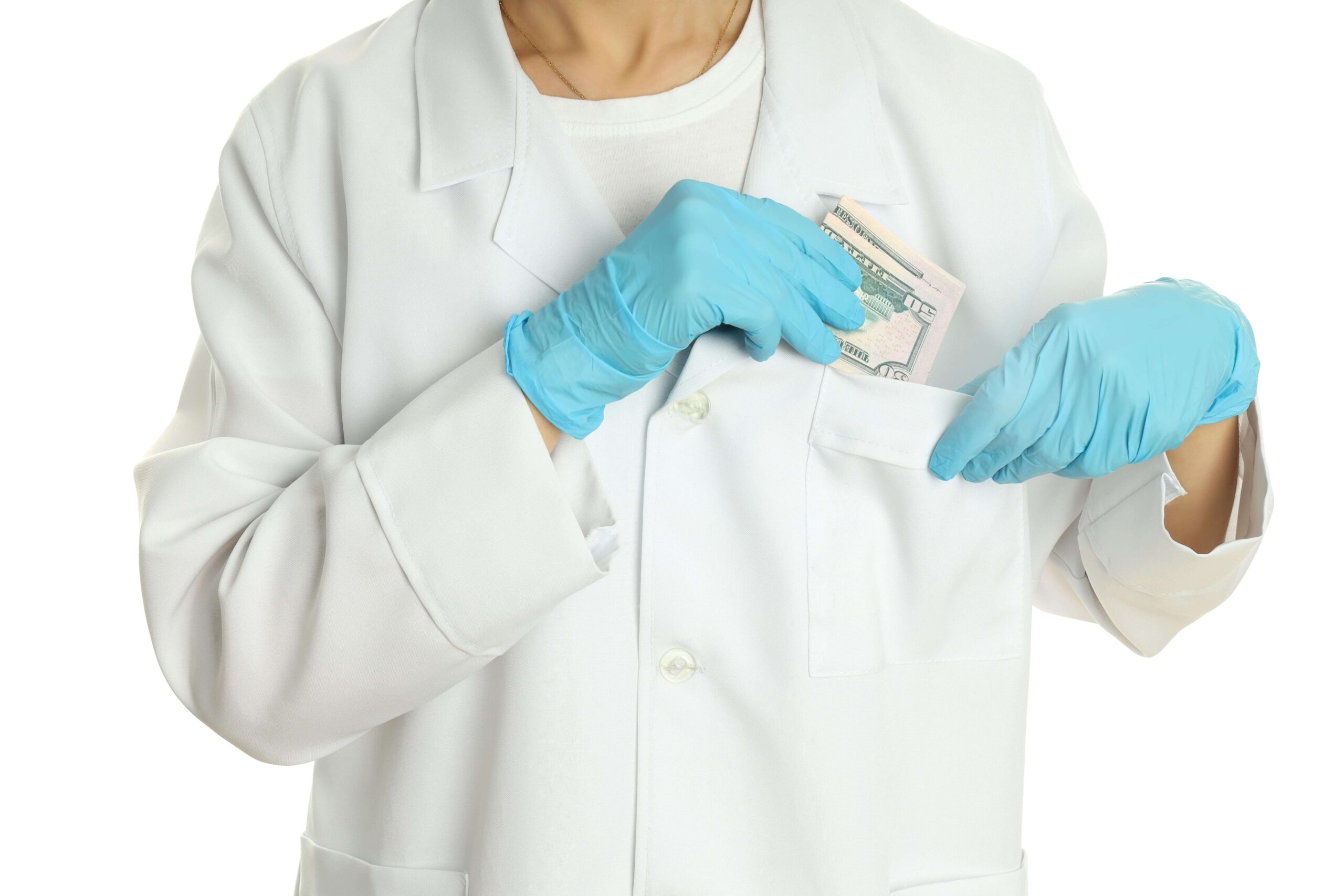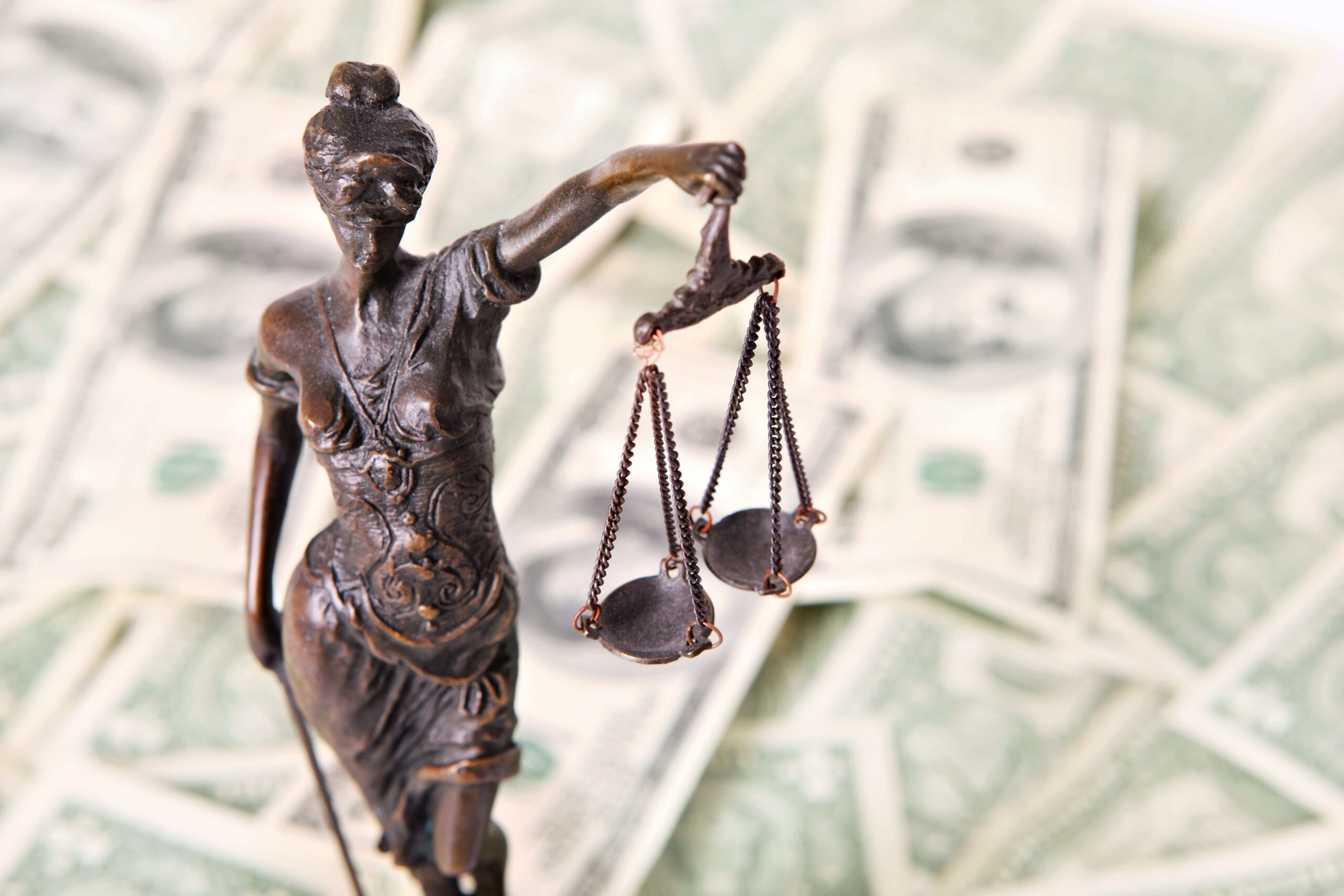
Fighting Against Medicare and Medicaid Fraud: Expert Whistleblower Legal Support and Rewards
According to the federal government, more than $60 billion is stolen annually through Medicare and Medicaid fraud. That is just the fraud the government knows about. Most experts believe that the number is actually much higher and that most of the fraud is almost impossible to detect.
That is why the government pays financial rewards and offers legal protection to whistleblowers who come forward with evidence of health care fraud. In fact, every year the government pays whistleblowers hundreds of millions of dollars in whistleblower rewards.
If you have evidence of Medicare or Medicaid fraud, you should speak with an experienced whistleblower lawyer right away. Before founding The Howley Law Firm, John Howley, Esq. spent two decades representing major pharmaceutical companies, hospitals, and other large health care providers. Today, he uses all that knowledge and experience to help individual whistleblowers stop the fraud and earn substantial financial rewards.
Do you qualify for a whistleblower reward? Contact us now for a free case review. We will review your evidence, go over all your options, and explain the process of qualifying for a whistleblower reward and legal protections. The consultation is free and confidential. If you have a case, we will represent you on a contingency fee basis. That means you will not have to pay any legal fees unless you win.
Help Stop Billions of Dollars in Health Care Fraud
Health care fraud is a nationwide crisis. When health care providers make false claims to Medicare, Medicaid, and other government healthcare programs, they reduce the amount of money available to provide treatment to patients who need it. They also increase the costs to taxpayers by billions of dollars every year.
By providing the government with evidence of Medicare or Medicaid fraud, you can help improve the quality of health care while lowering the costs. In return, the government will pay you a reward of between 15% and 30% of the amount of money it recovers. Even in small cases, the government often pays whistleblowers hundreds of thousands of dollars in reward money. And in larger cases, it is not unusual for the government to pay whistleblowers millions of dollars.

It is important to emphasize that only the first whistleblower to file a claim is entitled to a financial reward. So, you should not delay. If you have evidence that a health care provider is submitting false or inflated claims to Medicare or Medicaid, contact our legal team today at (212) 601-2728 to find out if you qualify for a financial reward and legal protections as a whistleblower.
There is another, important reason why you should take action right away. In recent years, the government has developed sophisticated analytical tools, including using artificial intelligence to scan health care claims data for evidence of fraud. Sooner or later, the government will discover the Medicare and Medicaid fraud. If you know about the fraud, you basically have two options:
- You can do nothing and hope that FBI agents do not show up at your home one day asking when you first learned of the fraud and why you did nothing to stop it;
- Or you can consult with an experienced whistleblower lawyer today and find out if you are eligible for a financial reward and legal protections as a whistleblower.
Doing nothing is not a viable option. Get professional guidance from an experienced health care fraud whistleblower lawyer today by calling us at (212) 601-2728.
What Is Medicare and Medicaid Fraud?
Medicare and Medicaid fraud occurs when a health care provider such as a hospital, nursing home, hospice, urgent care center, or doctor submits a false or inflated claim for reimbursement to Medicare, Medicaid, or another government health care program. It can take many different forms, and new types of fraud are being invented every day. But all types of health care fraud have one thing in common: a false statement was made in order to get money from Medicare, Medicaid, or another government health care program.
Here are some of the most common types of Medicare and Medicaid fraud:
- “Phantom Billing” or billing for services that were never provided
- “Upcoding” or billing for more expensive services than actually provided
- “Unbundling” or billing for separately for services that should be billed together
- Patient abuse and substandard care in nursing homes
- Offering or accepting kickbacks in return for patient referrals or prescriptions
- Physician self-referrals or Stark Law violations
- Off-label marketing of pharmaceuticals
These are just a few of the many fraudulent activities that are considered under the umbrella of Medicare and Medicaid fraud. Helping the government stop these types of fraud can qualify you for a whistleblower reward and legal protections.
What Is the False Claims Act?
The False Claims Act (FCA) is a federal law imposing liability on individuals and entities defrauding governmental programs, including health care programs like Medicaid and Medicare. Since Medicare and Medicaid fraud violates the FCA, whistleblowers can file complaints regarding indirect and direct cases of fraudulent activity in a government health care program.
Health care fraud can also occur in state-administered health care programs. Most states have their own versions of the False Claims Act, allowing whistleblowers to recover unlawfully billed funds from State governments.
What Are Qui Tam Actions?
Qui tam provisions allow whistleblowers to sue on behalf of the government. Entities or persons with proof of Medicare or Medicaid fraud file a lawsuit against the offender. The government can join or decline the action. However, only attorneys can file a qui tam claims, so you must hire an attorney to file the lawsuit.
How Can Whistleblowers Help Prevent Fraud?
Whistleblowers can allow justice to be served when wrongdoing or unlawful action has occurred, dissuading wrongdoers from repeating unlawful action. Those who violate the False Claims Act by committing Medicare or Medicaid fraud face civil penalties. Violators are liable for civil penalties of $13,946 to $27,894 per false claim in addition to three times the amount the government was defrauded.
Whistleblowers who file a qui tam lawsuit can expose unlawful acts and dealings that the government would have been unable to detect, bringing inside information to light. In addition, qui tam plaintiffs may bring forward information about ongoing illegal conduct that law enforcement was unaware of.
Which Types of Medicaid & Medicare Fraud Can Whistleblowers Report?
If you have evidence of health care fraud, you may be entitled to a Medicaid & Medicare fraud whistleblower reward. Here are some examples of violations you could report:
- Upcoding involves billing for healthcare services at a higher reimbursement rate than justified by the services provided. This usually involves using a higher billing code than the service justifies. Whistleblowers can expose healthcare providers who overcharge Medicare or Medicaid through upcoding.
- Kickbacks. Whistleblowers may report instances of healthcare providers engaging in illegal kickback schemes or financial arrangements that violate laws such as the Anti-Kickback Statute (AKS). The AKS is a criminal law prohibiting payment for patient referrals or services and items, such as drugs or treatments, payable by Medicaid or Medicare.
- Billing for unnecessary services or services not provided. Whistleblowers can report healthcare providers billing Medicare or Medicaid for services that were not medically necessary or were never provided. Unnecessary services can include advanced lab tests, imaging, and other procedures.
- Unbundling Services. Unbundling is billing for services separately when they should have been billed together under a single billing code. Whistleblowers can report unbundling if the practice results in an inflated claim.
- Billing for unlicensed or unsupervised personnel. Billing for unlicensed staff can include billing for services provided by individuals lacking the required licenses or skills. An example of fraudulent billing would be billing for a licensed physician’s time when a non-physician performed the actual work.
- Electronic health record (EHR) fraud. EHR fraud can occur when health care providers manipulate electronic health records to increase reimbursement or conceal fraudulent billing. Whistleblowers can report instances where providers intentionally manipulate EHR systems to receive higher reimbursements from Medicare or Medicaid.
This list is not exhaustive. In addition to the fraudulent behaviors mentioned, whistleblowers may report other improper practices, such as off-label marketing of prescription drugs, defective product violations, pharmacy fraud, and other types of fraud.
Determine whether you are entitled to a Medicare & Medicaid fraud whistleblower reward by contacting The Howley Law Firm today for a free consultation at (212) 601-2728.
What Are Medicaid & Medicare Fraud Whistleblower Rewards and How Are They Paid?
A whistleblower or qui tam plaintiff is entitled to a reward of between 15% and 30% of the full recovery from the defendant, either through a favorable settlement or judgment. The rewards for Medicare & Medicaid fraud whistleblowers can be significant and may total millions of dollars. However, the damages must be widespread, and multiple instances of fraud must be reported.
Whistleblowers are more likely to receive rewards if they have worked for a healthcare provider or hospital responsible for the fraud. This is because they have more knowledge than patients of fraud schemes. Larger awards are paid to those with insider evidence of Medicare and Medicaid fraud.
You Must Sue to Recover a Medicaid & Medicare Fraud Whistleblower Reward
In order to be eligible for a whistleblower reward under the False Claims Act, you will need to file a qui tam lawsuit. You cannot just inform the government about the fraud. You can only receive the reward after the government has recovered the money from the accused as a result of your lawsuit.
Whistleblowers Are Protected from Retaliation
The False Claims Act gives you the right to sue your employer if you were demoted, discharged, harassed, or discriminated against due to reporting fraudulent activities. Any lawful acts that you engage in to stop the fraud can qualify you for compensatory and punitive damages if you suffered retaliation by an employer.
This relief may include the following:
- Double back pay
- Reinstatement to your previous position
- Compensation for reasonable attorneys’ fees and litigation costs
Contact a Medicare & Medicaid Fraud Whistleblower Lawyer Today
Fraudulent reimbursement claims by healthcare providers are far too common in the healthcare industry. This is why whistleblowers are empowered to serve justice in their cases and to bring a voice to the many whom the healthcare system has victimized.
Our attorneys here at The Howley Law Firm can provide the legal guidance you need for your Medicaid & Medicare fraud whistleblower reward case in New York. It is not too late to take back your power, fight back, and see justice served in your case. We can walk you through every step of the reporting process. If eligible, we can file a lawsuit “under seal” (in secret), deliver your evidence to the government, and make sure you comply with all relevant deadlines and procedures.
Our whistleblower lawyers are here to help you stop the fraud, secure your whistleblower reward, and protect your career. Contact us today and get a tenacious lawyer to help you.

FAQs – Ask a Lawyer about Medicaid & Medicare Fraud Whistleblower Rewards
Evidence to support a Medicaid or Medicare fraud claim can include billing records, patient charts or records, emails, audio recordings, financial statements, witness testimony, and any other information that helps to substantiate the fraudulent activity.
Document your findings meticulously and consult with a whistleblower attorney at The Howley Law Firm. We have years of experience in handling whistleblower claims. We can assess the strength of your case and prepare a comprehensive whistleblower complaint.
Whistleblowers who follow the procedures in the False Claims Act to report Medicaid and Medicare fraud are eligible to recover substantial financial rewards if their case leads to successful enforcement actions and monetary recoveries.
Under the False Claims Act, if your case is successful, you are entitled to a reward of 15-30% of the total recovery, plus attorney’s fees and other legal expenses. In addition, a Medicare or Medicaid fraud whistleblower filing a qui tam lawsuit may also qualify for other compensation, such as lost wages and other damages resulting from an employer’s retaliation.
There are several ways to report Medicare and Medicaid fraud, but only one way to qualify for a whistleblower reward.
You can report Medicaid and Medicare fraud by filing a complaint with the appropriate government agencies, such as the U.S. Department of Health and Human Services (HHS) or the Centers for Medicare & Medicaid Services (CMS). If you use this method to report fraud, you will NOT be eligible for a whistleblower reward. There also is NO guarantee that the agencies will actually investigate your complaint.
In order to qualify for a whistleblower reward, you must follow very specific procedures under the False Claims Act. This includes filing a complaint “under seal” (that is, in secret) on behalf of the government, and then giving all of your evidence to the government so they can conduct an investigation. All of this must be done through a lawyer who understands the details of the process. If your complaint results in a financial recovery by the government, you will be entitled to a financial reward of between 15% and 30% of the total amount recovered.
Call The Howley Law Firm today at (212) 601-2728 for a free case evaluation and to discover your next best steps.
Before founding this law firm, John Howley, Esq. was a partner in one of the largest, most prestigious corporate litigation firms in the country. For 20 years, he represented large pharmaceutical companies, major hospitals, and other health care clients in their most important lawsuits. Today, he uses all that knowledge and experience to help whistleblowers like you stop fraud, earn financial rewards, and protect their careers. If you have a case, we will represent you on a contingency fee basis. This means that you will not owe us any legal fees unless you win.
The Medicare and Medicaid fraud whistleblower reward program, also known as the False Claims Act, allows individuals to file a lawsuit on behalf of the government against those committing the fraud. If the lawsuit is successful and funds are recovered, the whistleblower receives a percentage of the recovered funds as a reward.
The amount a whistleblower can receive as a reward for reporting Medicare or Medicaid fraud varies depending on the case. Typically, the reward is between 15-30% of the recovered funds.
FAQs:
The Medicare fraud whistleblower reward program, also known as the False Claims Act, allows individuals to file a lawsuit on behalf of the government against those committing Medicare fraud. If the lawsuit is successful and funds are recovered, the whistleblower may receive a percentage of the recovered funds as a reward.
The amount a whistleblower can receive as a reward for reporting Medicare or Medicaid fraud varies depending on the case. Typically, the reward is between 15-30% of the recovered funds.




